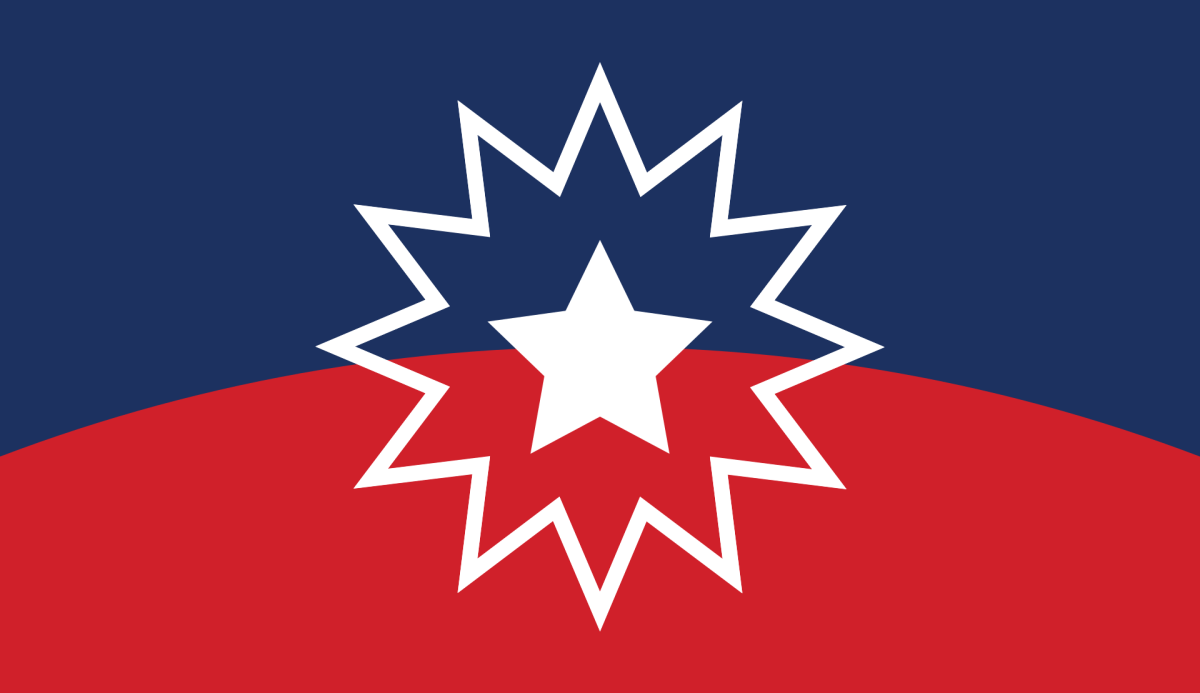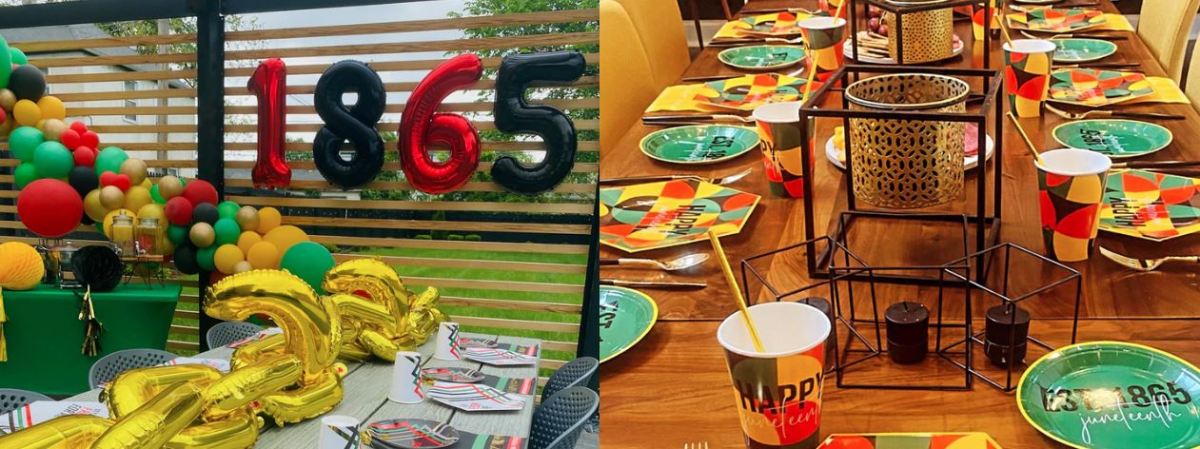Everything Wrong (& Almost Right) With Juneteenth Ice Cream Now Canceled by Walmart
Let's unpack why Walmart's Juneteenth ice cream wasn't It.

With LGBTQ+ Pride Month and the first-ever national acknowledgment of Juneteenth as a federal holiday coming around the corner, many marginalized communities are bracing for impact as the direct marketing from companies who treat us like expendable consumers and second-class citizens starts to pour in. These same companies will line the pockets of policymakers who create laws that create anti-trans, more broadly anti-LGBTQ+, xenophobic, and anti-Black statutes and regulations. Also, as a bonus, many of these same companies will actively harm us within the bounds of the U.S. and abroad. But, hey, they participated in Blackout Tuesday and changed their logo to fit the PRIDE flag!
Despite the mental prep and fortitude, these products are already coming in, and none are getting as much attention as these Juneteenth ice cream and decorations sold by Walmart.
As a quick refresher, Juneteenth is a celebration in South Texas (Harris and Galveston Counties) and the southern and western states, more broadly celebrating the end of U.S. slavery 1.0 (2.0 comes with the legal loopholes provided in the 13th Amendment). After the U.S. Civil War’s end, many enslavers lied (including by omission) to their enslaved people about their newly found freedom, and it took almost two years (until June 19, 1865 to be exact) for the Black people of Galveston to learn this news via Union soldiers.
Some of the newly free people left, but many stayed around and built communities (Freedman Towns) around Houston and Galveston because everyone they knew was already there. They began holding annual celebrations within two years, including places like Emancipation Park. This park is one of the first public parks in Texas and was crowdfunded by the local Black community so they would have an outdoor space to gather.
The end of Reconstruction, the rise of Jim Crow, subsequent racial terrorism, and economic struggles made it difficult to resume Jubilee Day celebrations for nearly 70 years. It didn’t pick up again until the end of the Civil Rights Movement.
There are so many things wrong with this ice cream and these plates, but I want to go through the ice cream because at least the plates are from a Black-owned company. (That doesn’t let bad design off the hook, though.)
The color choice

I know when people see the pan-African colors (green, red, and black) within a ten-mile radius of a Black person, they associate it with anything Black, like Black History Month or Kwanzaa. While intracommunity celebrations use the pan-Africa flag and colors during the Juneteenth celebration, Juneteenth’s official flag (which is visible on the wrists of one of the arms) appropriates the red, white, and blue from the American flag. Juneteenth’s revitalization in the ’80s and ’90s came via waves of Black liberation movements, and by the late ’90s and early ’00s, the flag (and a few variated with the same colors) was born.
The curved horizon marks a new beginning, and the star bursts in the center. Instead of referencing political parties, I think about the blue being the sky and the red means a variety of things. The red could symbolize America’s bloody foundation (Earth) and/or the celebratory red foods associated with Juneteenth. Food historian and writer of The Cooking Gene Michael Twitty wrote on his blog Afroculinaria:
After slavery enslaved people began to recall and re-construct their experience through the celebration of Juneteenth. The practice of eating red foods—red cake, barbecue, punch and fruit– may owe its existence to the enslaved Yoruba and Kongo brought to Texas in the 19th century. For both of these cultures the color red is the embodiment of spiritual power and transformation. Enslavement narratives from Texas recall an African ancestor being lured using red flannel cloth, and many of the charms and power objects used to manipulate invisible forces required a red handkerchief.
It’s clear that even in slavery’s aftermath; Afro-Texans had a rich food culture, created under adversity in communities with rich cultural origins and a diversity of influences, with a strong root in the foodways and cultures of West and Central Africa.
The flavor and the trademark
The one thing that this ice cream almost got right was the flavor. Some people argued something vanilla might have been more symbolic, as this flavor historically was not afforded to most Black people in the Jim Crow South outside of Independence Day (July 4) a few weeks later. Juneteenth being a day celebrating the closest thing we’ve ever gotten to, it would’ve been a bold connection, but why be bold when your company, Balchem Corporation (who trademarked the word ‘Juneteenth’), is just out to make money? Trademarked September 2021, Balchem Corporation must use their patent (#97008500) concerning:
Flavor enhancers used in food and beverage products; Bakery goods and dessert items, namely, cakes, cookies, pastries, and frozen confections for retail and wholesale distribution and consumption on or off the premises excluding candies and popcorn
This company decided to use it on a wide variety of things, but at least the red velvet and cheesecake were done, right? If you mean by keeping historically on a theme by stealing? Yes. The recipe bears a similar resemblance to Black-owned and operated business Creamalicious’ flavor called “Right as Rain Red Velvet Cheesecake.” This ice cream is available nationwide at various chains, if the flavors entice you.
Commercialization of Juneteenth
One of my first opinion articles on the internet was a college commentary about the importance of Juneteenth. I have thought about it several times in the wake of the news that Congress made this day a national holiday. Besides a reflective protectiveness and worry that only white-collar jobs would allow for an actual day off, I feared the commercialization that would soon follow, just like most major holidays or cultural celebrations.
Black-owned companies hold some other basic copyrights and viral images like these party decorations. Again, I’m not trying to start even state-based diaspora wars (which is pointless anyway, given shared experiences and immigration patterns). This is a southern and specifically Texas-based celebration, so why are all of these companies based in states like Illinois and Maryland turning up? The spectrum of mess and miseducation ranges from Juneteenth “isn’t a racial thing” to whatever are these ballooned chains are supposed to be.

In addition to this small bother, to make it this mass commodity means it’s out of your control how this moves about the world. I already feel bad for the Black employees in majority-white spaces with the guaranteed majority-white spaces using these in some microaggression way. This is similar to “Hawai’ian parties” and the mess that is Cinco De Mayo. The latter also has connections with Black liberation in the south. While too caught up in our Civil War to get super involved, the Confederacy was in talks to trade with the French despite a Union embargo after the win (that never happened) in the Battle of Puebla. Mexico was a more accessible route to freedom for enslaved persons in Texas and the deep south.
In the end, Walmart decided to pull the ice cream. They will undoubtedly have plenty of other cringe-worthy and empty gestures, but at least we can turn the page on this particular product. If you want to buy ice cream (not relevant—this is not a commercial holiday), then a Black-owned company like Creamalicious or, even an ally that aids in Black liberation year-round like Ben & Jerry’s, is always a better bet.
(via Twitter, featured image: Nickelodeon)
—The Mary Sue has a strict comment policy that forbids, but is not limited to, personal insults toward anyone, hate speech, and trolling.—
Have a tip we should know? [email protected]
